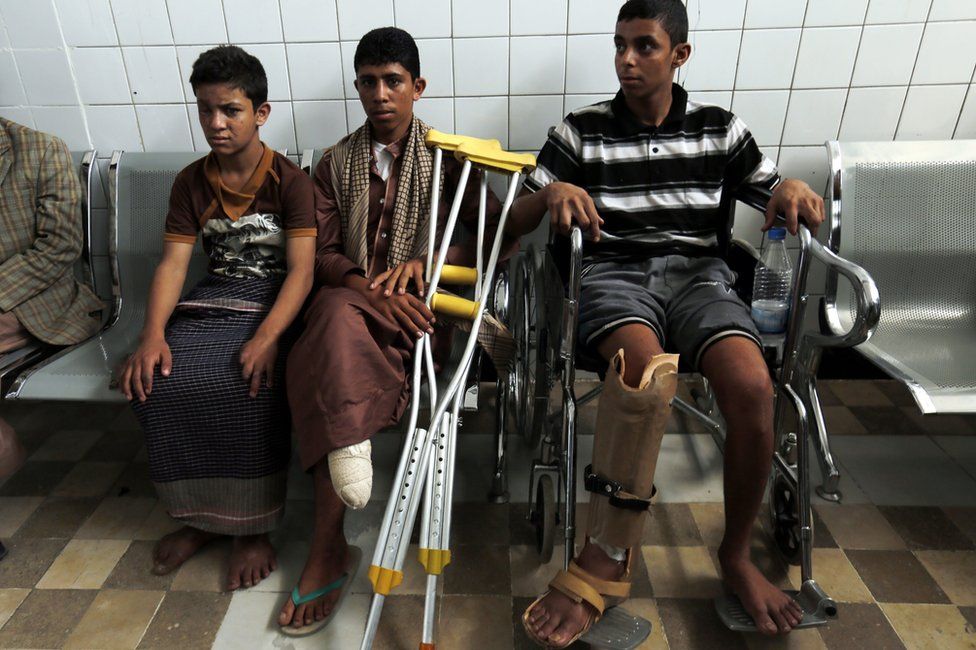Yemen conflict: UN takes Saudi coalition off child blacklist
- Published

The Saudi-led coalition fighting Houthi rebels in Yemen has been removed from a UN blacklist of states and groups that violate children's rights in conflict.
Saudi Arabia protested after the UN released a report saying the coalition was responsible for 60% of the child deaths and injuries in Yemen last year.
It said the casualty figures were "wildly exaggerated".
The UN said it would now carry out a joint review with the coalition of the cases listed in the report.
But the Saudi envoy to the UN insisted the removal of the coalition from the blacklist was "final".
The human rights campaign group Human Rights Watch sharply criticised the move, saying the UN chief's office had "hit a new low".
'Political manipulation'
The coalition - which comprises Saudi Arabia and nine other Arab and Muslim nations, supported by the US and UK - began fighting the Houthis in March 2015, two months after the rebels drove Yemen's government from power and took full control of the capital, Sanaa.
Since then, at least 6,200 people - about half of them civilians - have been killed and 2.8 million others have been displaced, according to the UN.
Last Thursday, UN Secretary General Ban Ki-moon issued his annual report on children and armed conflict, which described the situation in Yemen as "particularly worrisome".
It said there was a five-fold increase in the number of children recruited and used by armed groups in 2015 and that six times more children were killed and maimed compared with 2014.
The report attributed 510 child deaths and 667 injuries last year to the Saudi-led coalition, most of them caused by air strikes, and 142 child deaths and 247 injuries to the Houthis. In 324 incidents, the responsible party could not be identified.
Just under half of the 101 verified attacks on schools and hospitals were attributed to the coalition.
On Monday, Saudi Arabia's permanent representative to the UN, Abdullah al-Mouallimi, complained to Mr Ban about the report.
"If there are any casualties from the coalition side, they would be far, far lower," he said, adding that it used "the most up-to-date equipment in precision targeting".
Later, UN spokesman Stephane Dujarric said Mr Ban had accepted a Saudi proposal to remove the coalition from the blacklist pending a joint review of the cases and numbers cited in his report.
The secretary general had invited the coalition to send a team to New York as soon as possible for detailed discussions before the UN Security Council examines the report in August, he added.
However, Mr Mouallimi described the removal of the coalition from the blacklist as a "vindication", and said the decision was "irreversible and unconditional".
"We were wrongly placed on the list," he added. "We know that this removal is final."
Human Rights Watch accused UN officials of "political manipulation".
"After giving a similar pass to Israel last year, the UN secretary general's office has hit a new low by capitulating to Saudi Arabia's brazen pressure and taking the country off its just published list of shame," said the US-based group's deputy director for global advocacy, Philippe Bolopion. "Yemen's children deserve better."
The UN left Israel and the Palestinian militant group Hamas off the blacklist in the 2014 report, after they had been included in an earlier draft.